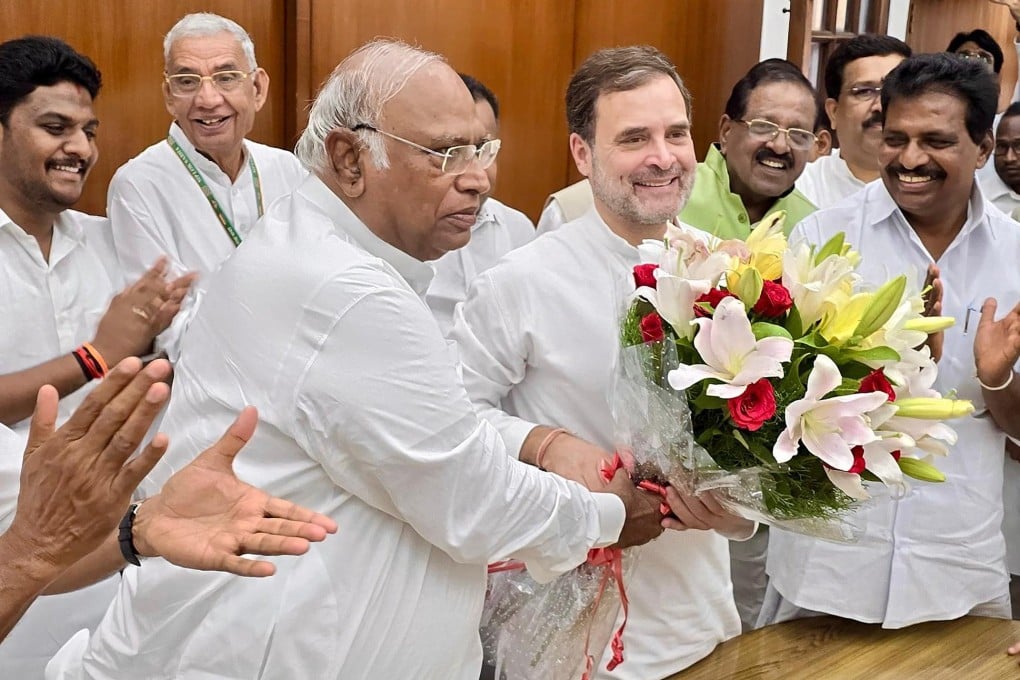India’s Rahul Gandhi named official leader of the opposition in boost for ‘robust democracy’
- Gandhi’s new role means he will now have the same rank as that of a cabinet minister and be able to challenge PM Modi directly on policy issues

The decision to name Rahul Gandhi the official leader of the opposition in India’s parliament signifies a potential revitalisation of the country’s “robust democracy”, with analysts suggesting this move could balance the political landscape after a decade without a strong opposing voice in the government.
The Indian National Congress, the country’s main opposition party, announced on Tuesday that Gandhi would assume the official role this week after a meeting with their coalition partners.
“In the 18th Lok Sabha, the House of the People shall truly reflect the aspirations of the last person standing, with Rahul Gandhi becoming their voice,” Congress party president Mallikarjun Kharge posted on X on Wednesday.
“As Congress President, I am confident that a leader who has traversed the length and breadth of the country from Kanyakumari to Kashmir, and from Manipur to Maharashtra shall raise the voice of the people – especially the marginalised and the poor.”

Congress had been unable to secure the position during the two previous governments under the ruling Bharatiya Janata Party (BJP) because it fell marginally short of the requirement of having 10 per cent of the seats in the parliament’s lower house required to name an official opposition leader.